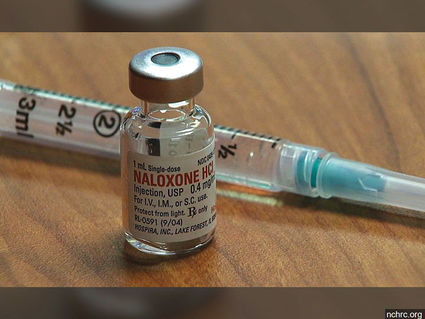Limited over-the counter access to overdose drug in Washakie County
WORLAND – Thanks to a bill passed by the Wyoming State Senate in March, pharmacists across the state are able to prescribe an opiate antagonist (Naloxone, known commonly as Narcan) to counteract the effects of an individual opiate overdose.
November 29, 2017
WORLAND – Thanks to a bill passed by the Wyoming State Senate in March, pharmacists across the state are able to prescribe an opiate antagonist (Naloxone, known commonly as Narcan) to counteract the effects of an individual opiate overdose.
According to the Centers for Disease Control, over 64,000 people died from opiate-related overdoses in 2016, and while national pharmacies such as Walgreens and CVS have made Narcan more readily available to combat overdoses, the availability of the drug in Washakie County is limited.
Ambulance services in the county routinely use the medication, and have so since before it was made available to the public.
"It's been in use for over 20 years, and we've have administered it in the past," said Gard Ferguson, Interim Director for Washakie County Ambulance Service.
Ferguson explained that currently in the state, basic emergency medical technicians are not qualified to administer the medication, although intermediate and advanced EMTs are.
In Worland, Ricker Pharmacy does not currently carry the drug, although pharmacists have attended Drug Enforcement Agency training, and the pharmacy is considering carrying the drug in the future.
At Shopko, Pharmacist David Ahlstrom verified that Narcan is available by order if requested, and he will sell a prescription if requested by a customer. Although the drug is available in a nasal spray that counteracts an overdose, Shopko instead offers a one-time injection dosage.
Ahlstrom believes it is only a matter of time before the drug becomes common with law enforcement and first responders.
"It's a law over law thing," said Ahlstrom." Once it becomes easier to get it will spread to other agencies and become easy to have if it's needed."
According to the Wyoming Department of Health, Narcan blocks the effects of most opium-based drugs, including heroin, morphine, oxycodone, methadone, fentanyl, hydrocodone, codeine, hydromorphone and buprenorphine.
Individual sprays or one-time injections cost an average of $125, and are currently covered by most insurance providers.
Under Wyoming state statutes 35-4-901 through 35-5-906, the only qualifier to obtain Narcan from a pharmacy is to request it from the pharmacist, indicating that you, or someone you know, could be at risk of an overdose event.
"You don't need to take any special training or fill out any special forms to get it," said Ahlstrom, "you just need to answer a few questions from a pharmacist."
While grants and training have been made available through the state Office of Emergency Medical Services and the Wyoming Association of Sheriffs and Chiefs of Police, Washakie County law enforcement officers currently do not carry the drug, although Worland Police Chief Gabe Elliott expressed that the department is pursuing options.
"We are researching the training offered through the state and if everything works right we could take it on so that officers are able to respond," said Elliott.
The main concern for the department at the moment is control of the drug.
"Narcan is temperature-sensitive," said Elliott. "Ambulances are a controlled environment, here our patrol cars are out in the cold and heat and so it we would have to figure out if we could control the temperature of the drug, but we are talking about it."
When contacted, Hot Springs and Big Horn county law enforcement also indicated that they do not currently carry Narcan for overdose events, although ambulance crews have it available.
"As it stands, not just any 'first responder' can administer Narcan," noted Ferguson. "But with new training it should start to open up."
According to the Wyoming Emergency Administration of Opiate Antagonist Act, that went into effect July 1, 2017, "a person acting in good faith may administer an opiate antagonist to another person who appears to be experiencing an opiate related drug overdose" and "is personally immune from civil or criminal liability for any act or omission resulting in damage or injury."
"I think it's great that Narcan is currently available [to the public]," said Ferguson, "but it's a shame we have gotten to this point."




